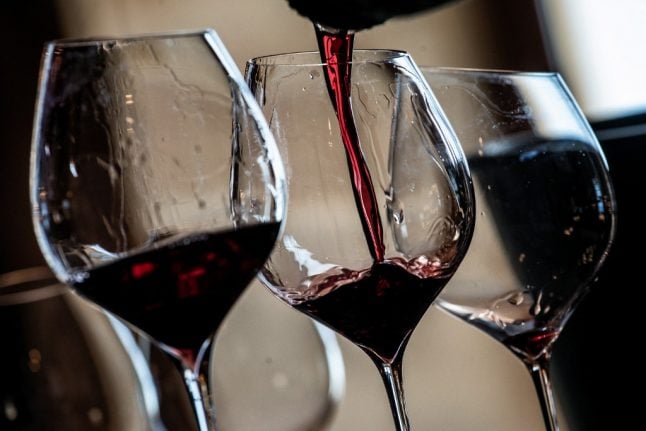US Customs and Border Protection said in a note issued on Monday evening that the new tariffs would enter into effect on January 12th, after suspending the tax “until further notice” last week.
Imposed as a retaliatory measure in a longstanding dispute between the US and EU over subsidies to aircraft manufacturer Airbus, the new rules affects export of French wines (excluding sparkling wines) and certain aircraft parts.
In addition to the 25 percent tariff imposed on a range of French wines and cognac, the aircraft parts concerned will be subject to a 15 percent tariff.
The new tariffs supplemented those imposed on a list of EU products in 2019, including French wines of less than 14%, which caused US imports of French wine to plummet.
READ ALSO: Trump's US wine tariffs 'threaten 100,000 jobs in French countryside'
The US imposed the punitive tariffs after the World Trade Organisation faulted the EU for failing to remove illegal subsidies for the pan-European aerospace group Airbus, whose main rival is the US giant Boeing.
“It will be much more difficult for consumers to buy French wines,” Anthony Hudry, export sales director for Château Puech-Haut wines, told French media LCI.
Hudry worried that Americans in the future would “turn to Californian wines, or other export markets that are not subject to taxes”.
The US is the leading non EU export market for French winemakers in terms of value. Americans bought €1.6 billion worth of French wines and spirits in 2018.
Together with the UK and China, the US accounts for 50 percent of France's overall wine and spirit sales.



 Please whitelist us to continue reading.
Please whitelist us to continue reading.
Member comments